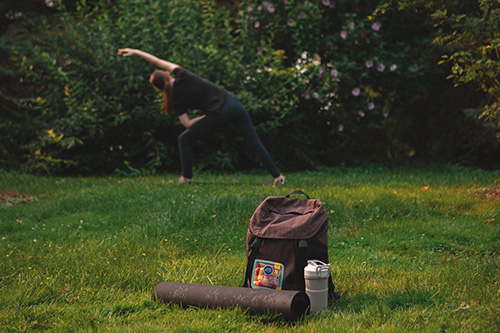Sometimes, taking the first step toward change can feel scary and overwhelming. Our friend Evelyn Arguelles at @livewellwitheve acknowledges that getting started on your fitness journey may feel that way in the beginning, but she has shared a few great tips that you can use to make significant life changes with small steps.
1. HAVE A CLEAR REWARD IN YOUR MIND
When there is high motivation and excitement about starting your health journey, it is easy to go “ALL IN” and dive right into it. What happens many times is that when there is no longer that excitement and motivation, it becomes harder to maintain those changes in the long run. Before making any new changes in your life, ask yourself two questions – why and how will I benefit from this? Get specific about the rewards that you will get from a particular action. Re-read your WHY occasionally to give you that extra reminder and motivation.
2. THINK ABOUT IDENTITY MORE THAN OUTCOME

According to James Clear, author of Atomic Habits: An Easy and Proven Way to Build Good Habits and Break Bad Ones, you should think more about your identity than the reward you will get from performing a habit. For example, say you wish to run one marathon yearly but have yet to experience running, and your reward is improving your cardiovascular fitness. You should not only focus on the reward but also ask yourself: Who is the type of person who would do this action? Who is the kind of person to run one marathon per year? Someone goes on a run every day or five times a week. Instead of saying: I want to run a marathon yearly, try to say: I want to become a runner. The more actions you do that reinforce that identity, the more likely you will become that identity. Instead of focusing on a particular outcome, you repeatedly do daily activities to strengthen that identity. Then, the outcome comes naturally. You become a runner who runs marathons every year.
3. FOCUS ON A SIMPLE AND SMALL HABIT

Rather than having an all-or-nothing mentality, focus on making small but steady progress. Along the way, your willpower and motivation will increase. The more you succeed at doing that simple and small behavior, the more positive feelings and emotions you will have towards it. The more positive feelings and emotions you have towards it, the more you will want to do it. BJ Fogg, a behavior scientist at Stanford University and author of the new book Tiny Habits: The Small Changes That Change Everything, says that the idea is to make small behavior changes that are easy to do. For example, if you want to read more, start by reading a couple of paragraphs at night, then a couple more sections, then a page, then a couple of pages, and increase it to a whole chapter. A habit must first be established before it can be improved. Remember that when you try to chew more than you can eat, you can quickly end up feeling frustrated, leaving you feeling so defeated that you stop trying to adopt the new habit. When you start small, you are setting yourself up for success in the long run. Make it easy to continue getting it done even when you feel less motivated.
4. FOCUS ON CREATING A GOOD ENVIRONMENT FOR SUCCESS
Stick to a time and location. Make it easy for you to repeat the same behavior repeatedly. For example, if you want to exercise after work, bring your gym clothes to work. Always change into gym clothes right after work and go straight to the gym instead of driving home from work and changing at home. Please make it so you have to make the least number of decisions before actually doing the behavior. The more decisions you must make before completing an action, the harder it is for you to do it.
5. BE PATIENT AND KNOW YOURSELF
When making a change in your life, you should expect setbacks. Habits can take a long time to form, so before you create a pattern, ask yourself: What setbacks can I expect? Plan for the struggle to prevent it from stopping you once it happens. Once you have made a couple of trials and errors – instead of giving up, ask yourself. What can I adjust to make this habit stick? What can I do to make it easier for me? Self-awareness plays a big part when creating a habit.

Self-awareness is the conscious knowledge of one’s character, feelings, motives, and desires. It allows you to understand yourself better and why you act a certain way. For example, are you unable to create a habit because you don’t like the pattern, feel like you can’t do it, are scared about what people might think, feel overwhelmed, or have another reason altogether? Once you figure out the reason, you better understand what to change to make that habit stick!
6. ACCEPT THE JOURNEY
Focus on building the identity of someone who achieves this habit. Don’t strive for perfection… You don’t need perfection; you need consistency and patience. Even if you fail a couple of times, keep trying and adjusting. Take it slower if needed. New habits are not meant to feel overwhelming. Start little by little.
Just remember that it does not matter how long it takes you to form a habit. No matter the time it takes you, you must put in the work. And even if you don’t achieve your goal right away, the real win is putting in the effort to try. So please don’t focus on how long it is taking you; instead, focus on doing the work and remember that health is individual to each of us, so let’s enjoy the process and be kind to ourselves.
~ Eve



